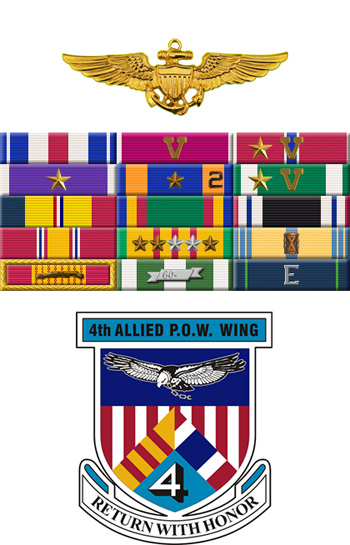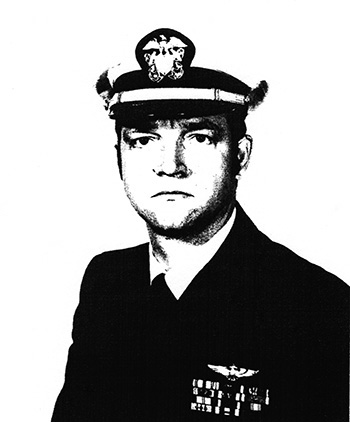
|
Charles D. Rice |
 |
|||
| Rank, Service | ||||
Commander O-5, U.S. Navy |
||||
| Veteran of: | ||||
|
||||
| Tribute: | ||||
Chuck Rice was born in 1943 in Setauket, New York. He entered the Aviation Cadet Program of the U.S. Navy on January 29, 1965, and was commissioned an Ensign and designated a Naval Aviator on April 15, 1966. His first assignment was as an instructor pilot with VT-1 at NAAS Saufley Field, Florida, from July to October 1965, and then with VT-9 at NAS Meridian, Mississippi, from October 1965 to January 1966. LtJg Rice then served with VT-4 at NAS Sherman Field, Florida, from January to May 1966, and with VT-25 and VT-26 at NAAS Beeville, Texas, from May to November 1966. After serving with Base Operations at NAS Miramar, California, he attended F-8 Crusader Replacement Air Group Training with VF-124 at NAS Miramar from January to August 1967. His next assignment was as an F-8 pilot with VF-162 aboard the aircraft carrier USS Oriskany (CVA-34) from August 1967 until he was forced to eject over North Vietnam and was taken as a Prisoner of War on October 26, 1967. After spending 1,967 days in captivity, Lt Rice was released during Operation Homecoming on March 14, 1973. He was briefly hospitalized to recover from his injuries at the Naval Hospital at St. Albans, New York, and then completed refresher pilot training with VT-21 at NAS Kingsville, Texas, from August to December 1973. LCDR Rice served as an A-4 Skyhawk aggressor pilot with VF-126 at NAS Miramar from January to October 1974, followed by F-4 Phantom II Replacement Air Group Training with VF-121 from October 1974 to August 1975. His last active duty assignment was as an F-4 pilot with VF-213 at NAS Miramar from August 1975 until he left active duty and joined the Naval Reserve on September 30, 1977. CDR Rice retired from the Naval Reserve on July 7, 1989. |
||||
|
||||

